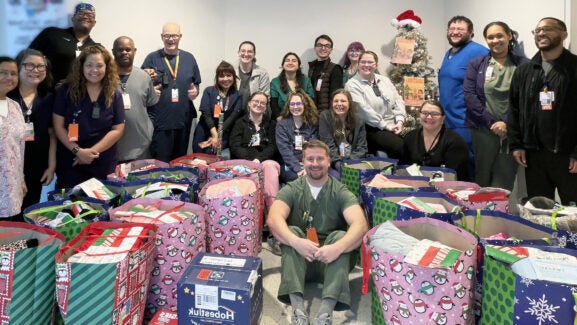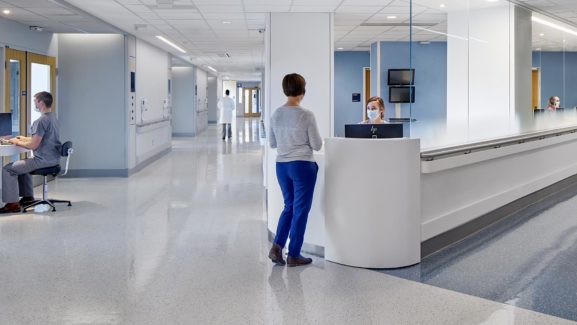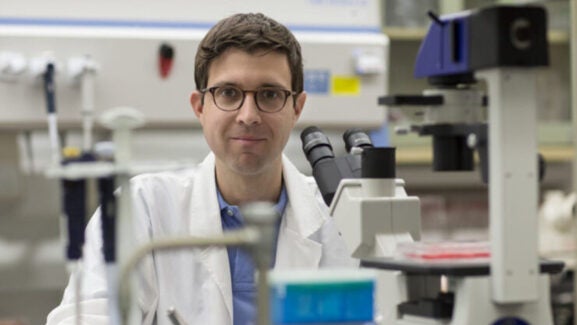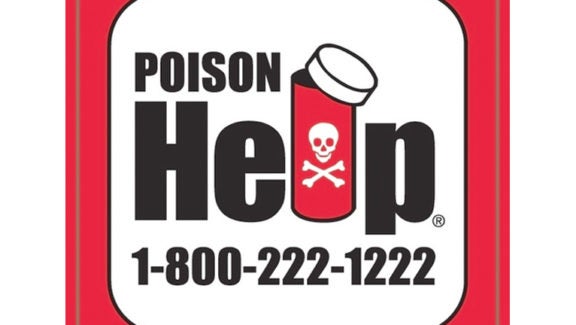
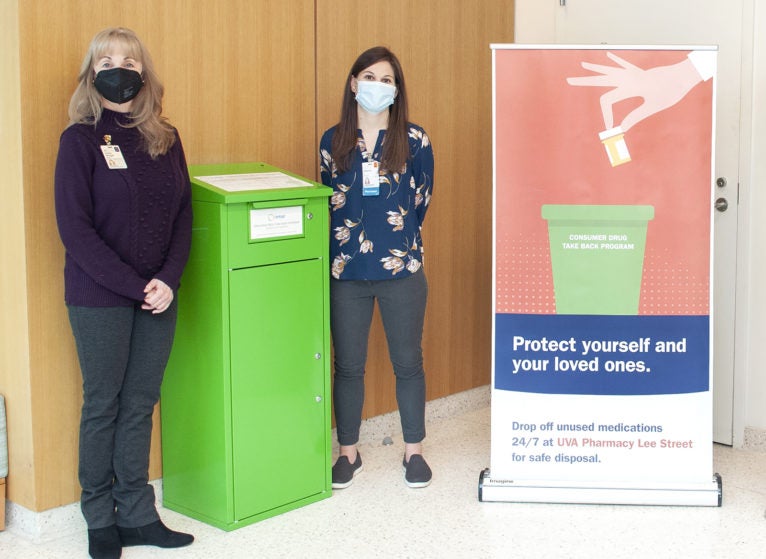
(l-r) Kristin Wenger and Adrienne Jantzi, PharmD, at the green take-back box located in the outpatient pharmacy.
Getting the Word Out: Protect Your Medicines During National Poison Prevention Week
March 20-26, 2022, is National Poison Prevention Week but, as Kristin Wenger, Education Coordinator, Blue Ridge Poison Center (BRPC) at UVA Health, points out, “Every week is poison prevention week.”
During the week, all pharmacies in its service area — including UVA Health’s — will be offered bookmarks and refrigerator magnets to insert with filled prescriptions. “It’s all free. The pharmacies just need to let me know how many prescriptions they fill on an average week, and I’ll send them materials.”
Seems simple enough, but the Blue Ridge Poison Center at UVA Health serves more than 600 pharmacies within its 54-county service region. If you draw a line down the center of Virginia, its service area (more or less) covers the left half of the Commonwealth.
“We get a lot of requests from the rural, southwest part of the state. But UVA Health’s pharmacy is the biggest, filling nearly 10,000 prescriptions a week.” Last year, the BRPC processed more than 70 orders, containing over 128,000 pieces of material which reached an estimated 64,000 households. (Yes, the boxes are heavy but Wenger doesn’t seem to mind sweating for the cause.)
The bookmark’s front includes reasons to call the Blue Ridge Poison Center (800.222.1222), which include:
- Medicine mistakes
- Swallowing anything that is not food or medicine
- Getting something harmful on the skin, in the eyes, or in the lungs.
- An overdose of any substance.
Expired or leftover medicine falling into the wrong hands is dangerous. As such, the back of the bookmark provides tips for safe disposal, the best of which is bringing them to a take-back site, like the green box in located in our outpatient pharmacy.
“It’s important that medicines don’t fall into the hands of a curious child, or a teenager or adult who may intend to misuse the product,” says Wenger. “It happened to my own mother. She had a newly filled prescription and contractors in her house stole her medicine. It’s sad, but it happens.”
The Blue Ridge Poison Center’s hotline is a nation-wide service — not unlike 911, but for poison-related incidents — staffed by nurses and doctors trained in medical toxicology. “They know how to handle poisoning of all kinds, including snake and spider bites,” says Wenger. “Surprisingly, 3/4 of medicine overdoses are accidents. My job is to help prevent these accidents — like educating folks on the importance of protecting their medicines.”
Wenger advices to always use the child-resistant containers (even if you don’t have children), store medicine somewhere not obvious (the medicine cabinet, despite its name, is not a good home for them), and keep track of your prescriptions (you should be able to notice if pills are missing or replaced).
“When taken as directed by your healthcare provider or the drug facts label, medicine can help safely manage many health conditions. But medicine can be just as dangerous as guns and, to some, as valuable as jewelry. We should all be treating them as such.”
If you want Blue Ridge Poison Center magnets or bookmarks, contact Wenger at 434.982.4386 or klw2s@virginia.edu. For more information, visit www.brpc.virginia.edu.
In case you missed it

Latest News

